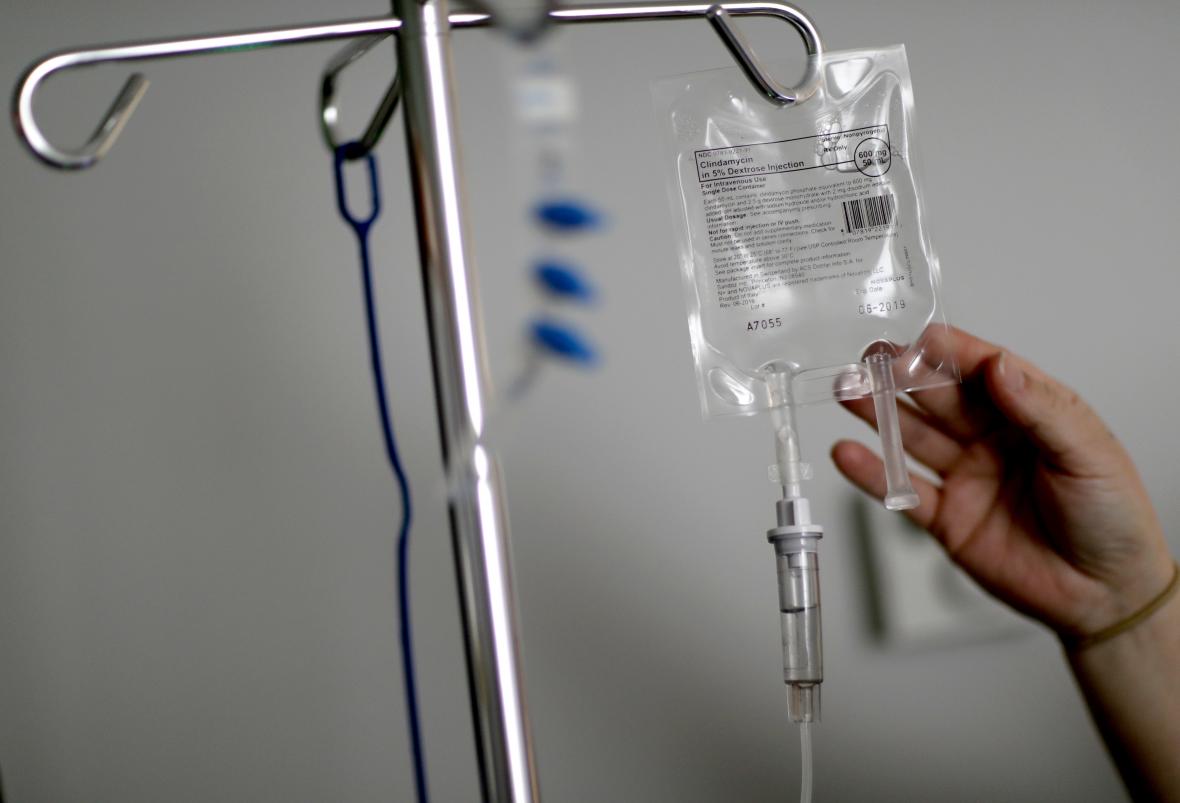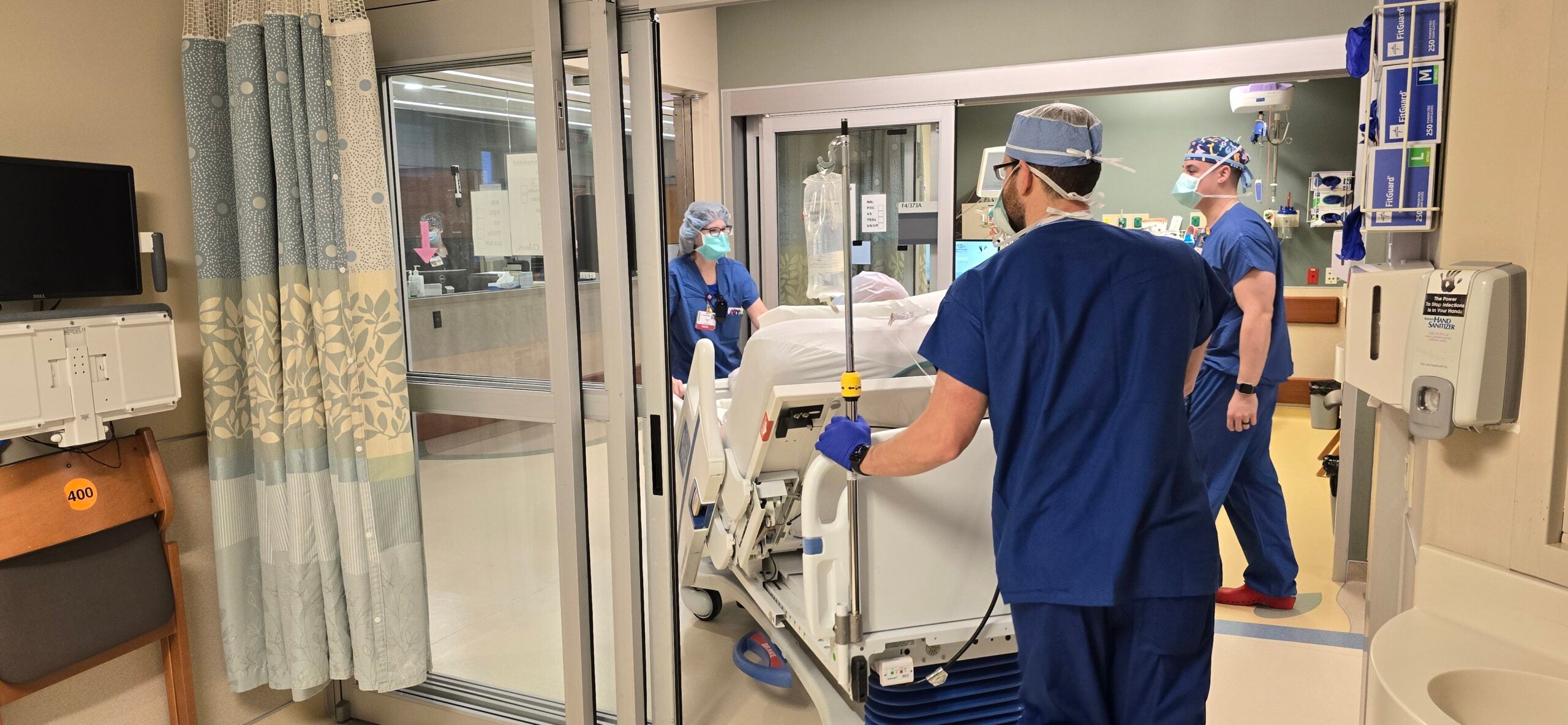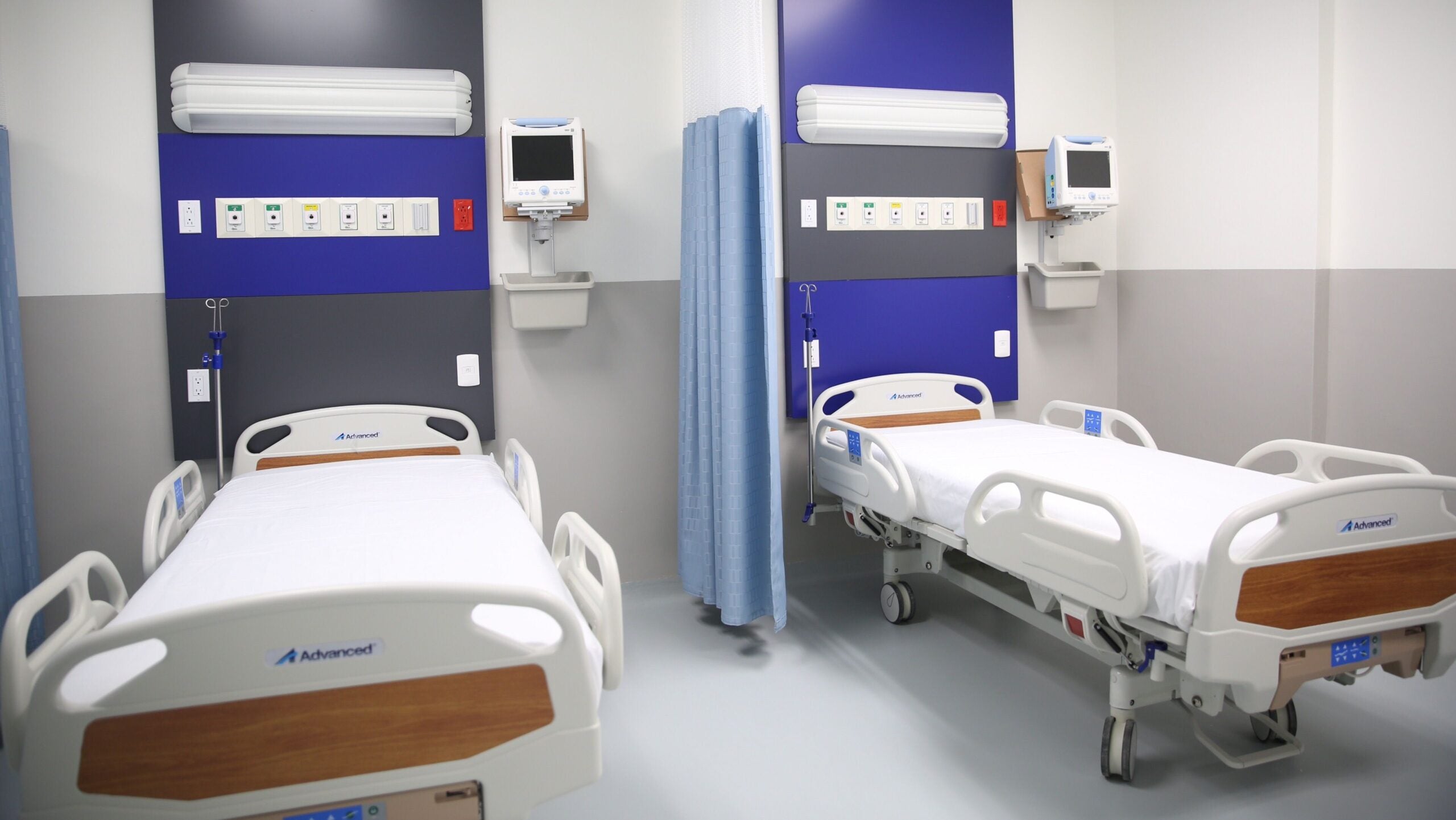Wisconsin hospital systems say they’re preparing to weather a nationwide shortage of IV fluids after Hurricane Helene hit the nation’s top manufacturer of the critical product.
Baxter International’s plant in western North Carolina was damaged by Hurricane Helene during the last week of September. The plant produces 60 percent of the IV fluids used daily in the U.S., according to a letter from the head of the American Hospital Association.
The Food & Drug Administration has declared a national shortage of several items produced by Baxter, including IV fluids and products used for wound irrigation. The designation allows hospital pharmacists to compound their own versions of the products if needed.
News with a little more humanity
WPR’s “Wisconsin Today” newsletter keeps you connected to the state you love without feeling overwhelmed. No paywall. No agenda. No corporate filter.
Health and Human Services Secretary Xavier Becerra said in a letter on Wednesday that shortages of normal saline and irrigation fluids “pre-date Hurricane Helene,” but the current disruption will likely lead to further limitations on the supply.
He said federal officials are working closely with Baxter to identify alternative manufacturing sites and identify alternative products.
A number of Wisconsin hospitals that get their IV fluids from Baxter declined to be interviewed by WPR.
A spokesperson for Froedtert Health in Milwaukee said the hospital is “closely monitoring” its inventory of IV fluids and their current supply is meeting patient needs.
In Madison, a spokesperson for UW Health said they are “actively managing the situation” and there are no impacts to patient care at this time.
A spokesperson for Mayo Clinic Health System in western Wisconsin said they are “closely monitoring” the availability of IV fluids.
“Teams are reviewing our inventory to assess and mitigate the potential effect of shortages,” the statement said. “Should it be necessary, Mayo Clinic will implement measures to ensure uninterrupted patient care.”
Gundersen Health, which is part of the newly-branded Emplify Health System, does not get standard IV fluids from Baxter. But the La Crosse-based provider does use the manufacturer for fluids used by patients completing dialysis at home, called peritoneal dialysis solution.
Bridget Pfaff, clinical operations director for Gundersen, said the treatment allows patients to remain at home instead of going to a clinic three times a week for hours-long treatment.
“We want to make sure that we are working closely with our patients and our care teams to stretch the current supply that they have,” Pfaff said. “We’re meeting weekly right now, evaluating the supply chain and exploring if there are any alternate products available for this patient population.”
She said the response is similar to procedures during the initial stage of the COVID-19 pandemic, when masks and other personal protective equipment were in short supply.
Pfaff said her health care system is able to continue care for their patients with the current supply. But given the uncertainty around how long the plant closure will last, her team is working closely with doctors to make sure their allocation of fluids will be enough in the coming months.
“(We’re) reviewing each patient’s care plan and determining, based on the allocations that are coming from the vendor, if we are able to support that patient and or if there’s other ways to medically manage (their care),” she said.
Wisconsin Public Radio, © Copyright 2025, Board of Regents of the University of Wisconsin System and Wisconsin Educational Communications Board.





